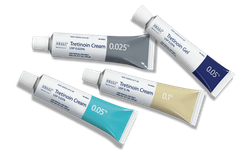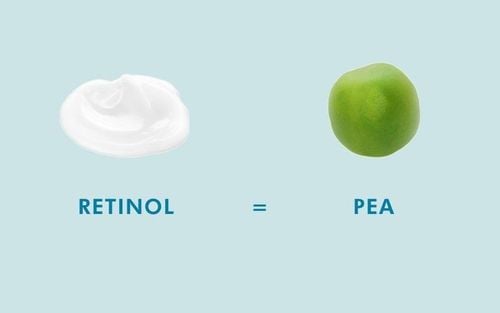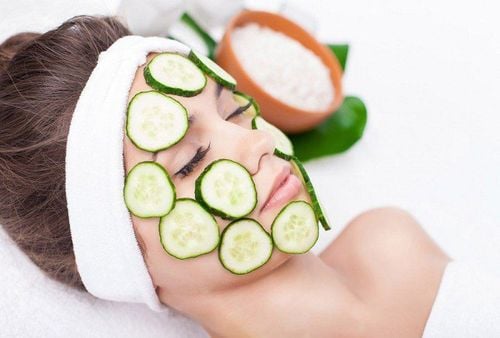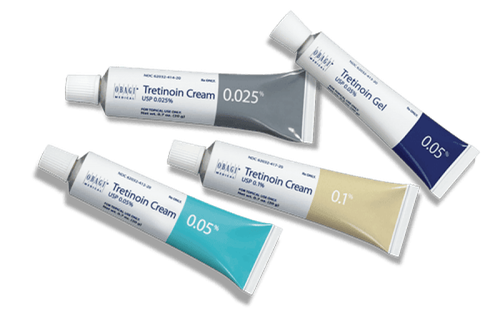In the context of modern life, where there are increasingly many factors affecting the skin, whether or not to use sunscreen at night is a common question. Understanding the benefits of sunscreen and how to use it correctly will help people orient themselves towards a scientific and reasonable skincare approach.
1. Benefits of sunscreen
Protecting the skin from UV rays
Protecting the skin from harmful UV rays is the most significant benefit of using sunscreen.
Due to the depletion of the ozone layer, harmful UV rays can easily penetrate the environment. While sunlight is a source of vitamin D necessary for the body, excessive exposure without sunscreen can be hazardous to health. Therefore, using sunscreen can prevent damage caused by harmful UV rays, which can also cause skin disorders.
See also:
- Choosing sunscreen: Besides SPF, why should you pay attention to the PA index?
- How to choose the best facial cleanser to reduce acne
Preventing premature aging
Youthful, radiant, and healthy skin is the dream of every woman. However, some studies have confirmed that people under 55 who regularly use sunscreen have a 24% lower risk of premature aging compared to those who do not.
Reducing the risk of skin cancer
If exposed to UV rays frequently, the skin can begin to lose its protective layer, making the skin more susceptible to skin diseases such as cancer, especially melanoma. In this case, applying sunscreen regularly can help keep the skin looking radiant and protect against skin cancer.
Reducing facial skin sensitivity
Applying an appropriate amount of sunscreen to the skin can help reduce the likelihood of skin irritation and redness. These skin disorders are often caused by the harmful effects of sunlight on the skin.
Preventing sunburn
Everyone enjoys spending time in the sun, especially in winter. However, sun exposure without sunscreen can cause sunburn, leading to peeling skin, redness, pimples, itching, and even hives in people with sensitive skin.

Many people love having tanned skin. However, while sunbathing to achieve that perfect tan, people can put their skin at risk of UV damage. To avoid this, use a sunscreen with an SPF of 30 or higher.
2. How to use sunscreen correctly?
Sunscreen is an essential skincare product that should not be overlooked, especially for those with sensitive skin. Reapply moisturizer every 2-3 hours. Here are some things to keep in mind when choosing the most suitable sunscreen for yourself.
Never buy any cosmetic product without checking the expiration date and its ingredients. Make sure your sunscreen includes ingredients such as Titanium dioxide,
Octyl methoxycinnamate, Avobenzone, and zinc oxide.
If you have acne-prone or oily skin, use a gel or water-based sunscreen and/or non-comedogenic and hypoallergenic.
To ensure that sunscreen stays on your skin longer, use a waterproof formula with an SPF of 30 or higher.
Use sunscreen even when sunbathing. Ideally, apply sunscreen at least 30 minutes before going outside. Then, reapply every 2-3 hours to protect your skin from the sun's harmful rays and sunburn.
In addition, make sure the sunscreen has an SPF of 30 (or higher), broad-spectrum protection (UVA/UVB), and is water-resistant.
3. How about using sunscreen at night?
This is one of the questions that many users are interested in. Because of the benefits of sunscreen, along with a conscious effort to take care of the skin, many people want their skin to be protected from UV rays both day and night. Therefore, should sunscreen be used at night, is it okay to use sunscreen at night, or is it harmful to the skin?
Applying sunscreen during the day is clearly the best way to prevent premature wrinkles by protecting the skin from the sun's harmful rays. However, the SPF in sunscreen is a large molecule, which when applied to the skin while sleeping at night will create larger pores.
Therefore, the key to skincare with sunscreen is to apply it during the day but always wash it off before bed. At night, you should only use a night cream specifically for your skin type and nighttime skin problems. This is the stage when the skin is self-repairing, so it is best to use a moisturizer with a combined skin care formula to improve skin function.
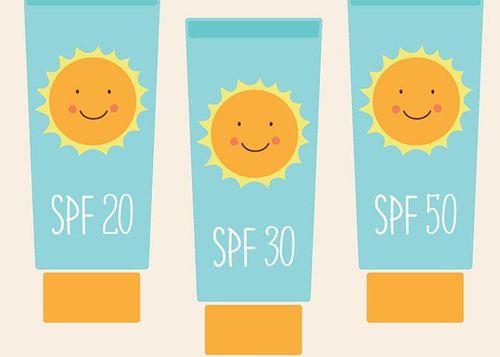
4. Reasons why you should not use sunscreen at night
Sunscreen is meant to be applied during the day while night creams are meant to be applied at night. Using it at the wrong time not only makes the sunscreen ineffective but can also be harmful to the skin.
Here are the reasons why you should not apply sunscreen at night:
Lack of moisture: Most moisturizers with SPF do not moisturize as well as those without SPF. At night, the skin goes through a self-repair process and needs a moisturizer with repairing ingredients. At the same time, while sleeping, the skin will also rest and not have to be exposed to environmental factors that cause skin aging.
Increased potential to clog pores: Sunscreen can have the potential to clog pores because it contains heavier ingredients used during the day and when used, it will often come into contact with pillows at night. In addition, SPF is a larger molecule and if used on the skin while sleeping at night, it will create larger pores.
More expensive: In the long run, applying both a moisturizer with SPF during the day and at night can be more expensive in the long run due to causing acne, dryness, and other skin irritations. Let your skin breathe at night and self-repair by using a night cream specifically designed for nighttime use.
In conclusion, although using sunscreen at night under ideal conditions would not be harmful, it is not the best strategy for your skin if you want your skin to look its best. This is also the answer for those who are wondering "should I use sunscreen at night". Accordingly, this habit is not encouraged and should be replaced by using a suitable night cream. This will both avoid harming the skin and provide optimal nutrients for the skin.
To arrange an appointment, please call … or make your reservation directly HERE. You may also download the MyVinmec app to schedule appointments faster and manage your reservations more conveniently.
